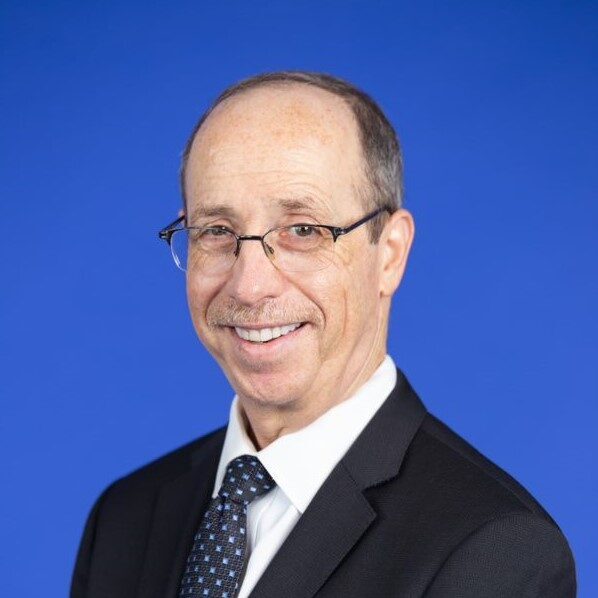
Dr. Weiss has been a member and volunteer of the DF for many years. We were happy to have an opportunity to talk to him about the Foundation’s contributions to the practice of dermatology and his hopes for the specialty and the DF for the next six decades.
The Power of Early Career Support for Future Skin Health
DF: Dr. Weiss. I want to first say thank you for being such a generous supporter of the Dermatology Foundation and giving so much of yourself.
Dr. Weiss: Thank you.
DF: How did you first learn about the Dermatology Foundation?
Dr. Weiss: They have been a part of my professional life since I started my dermatology residency.
When I became a resident, Dr. Voorhees made sure we knew what it was and that we had researchers being supported by the Dermatology Foundation. It was part of the fabric of my professional life from the earliest times.
DF: That’s wonderful. When did you become a member officially and why?
Dr. Weiss: I became an active donating member a couple of years out of residency. At first, at a very low level, but the Dermatology Foundation always made you feel that any donation was appreciated and that made me want to reach higher levels of contribution as soon as I could.
DF: Is there something that specifically inspires you to support the Dermatology Foundation?
Dr. Weiss: They are the backbone of the advancement of our specialty. They support the people who are going to become the key researchers and make the key findings that advance our therapeutic armamentarium—the future leaders of our specialty.
I can treat my patients more successfully because of their work. When I was a resident, we had a hospital ward filled with up to 50 patients who had psoriasis. We didn’t have the treatments we have today, and those treatments are a direct result of work that’s been done by many Dermatology Foundation awardees early in their careers.
DF: What role does the Dermatology Foundation play in your career specifically?
Dr. Weiss: Besides helping me be able to treat my patients better, the Dermatology Foundation gave me a platform to gain credibility within the pharmaceutical industry, with whom I interact as the chair of our Corporate Development. When they saw the time I was putting in and my devotion to it, it changed the perspective of some of the people with whom I’m interacting regularly in a very positive way.
DF: How has your involvement with the Dermatology Foundation evolved over the years?
Dr. Weiss: Very organically. At first, I was simply a donor and believed in what they did. Then I was asked to be on the Corporate Development Committee as a member, and then on the Executive Committee, which is now the Board of Directors. And I’ve been there ever since. I can’t even tell you how many years.
DF: Of all the professional organizations that you belong to, how does this organization stand out? What makes them a little different?
Dr. Weiss: The Dermatology Foundation is a totally selfless foundation. It doesn’t rely on you to give money to advance yourself or your career. It is advancing the specialty as a whole, and I don’t know of any other group that is doing the exact same thing.
There are other foundations, but they are advancing the cause of a specific disease state. This is very important too. The American Academy of Dermatology is doing great work with advocacy in the political realm, and they do a good job with education.
The Dermatology Foundation is looking to the future. The people who work for the Dermatology Foundation are creating a legacy. 50 or 100 years from now, the endowment that we’ve built will be funding research that will be delving into areas that we have no idea even exist right now.
DF: What is your dermatology story, Dr. Weiss? Was there a pivotal moment it found you?
Dr. Weiss: Though I didn’t know it at the time, my story began the day I was going off to medical school.
I had a father who was a man of very few words. He had the opportunity to go to medical, dental, or pharmacy school. He chose pharmacy because he was responsible for taking care of his father and needed the quickest pathway to earning a living. I think he always wished he had been able to become a physician, but he wasn’t able to.
On my way out the door, with the car packed and ready to go, he said, “You know, son, you should think about dermatology. They just found this hole in the ozone layer, and it’s going to result in a lot of conditions of the skin. It’s got a good future.”
And I laughed at him because I was going to be a primary care physician and save the world!
But when it came to the time of doing clinical rotations, I think that stuck. I started paying attention to all the other specialties, and I found that dermatology was fascinating. It fit so many of the parameters I had unknowingly set up for myself.
At some point it just clicked at that point that this was a path I wanted to take. It was the best decision I ever made after meeting my wife.
DF: Would it have been as present in your mind to be open to dermatology if that exchange with your dad hadn’t happened?
Dr. Weiss: My best friend’s father was a dermatologist, so I may have thought about it, but I don’t think it would have been as present in my mind at the time had my father not said that.
DF: We always hope we can influence our children in some positive way that they take with them into adulthood, and your dad did that.
Dr. Weiss: He did. He was a good man.
DF: What do you think has been the most significant impact that the Dermatology Foundation has made on Dermatology in the last 60 years?
Dr. Weiss: The advancement of the specialty—to a point where most of what I prescribe today was not available when I trained 35 years ago.
We are the development pipeline for people and medications, and I don’t know of any other foundation or group that can honestly say that.
DF: Where do you personally hope to see dermatology advance in the next 60 years?
Dr. Weiss: As I look at the area of personalized medicine, personalized therapeutics, CAR-T cell therapy, where you train cells to attack a tumor using a person’s own tumor and their own white blood cells—that’s where I see medicine going, and perhaps dermatology and the Dermatology Foundation can play a role in the next 60 years.
If you look to when I started in the 1970s along my path to becoming a dermatologist, there weren’t practical lasers that could be used. Those were developed by some people from the Dermatology Foundation Research Awards. We didn’t have anything near the biologics. We didn’t even realize that psoriasis was caused by the cells in the body that we now know caused psoriasis.
I can’t even fathom where we’ll be in 60 years, but I can see the relatively near future over the next 15 to 20 years and I am very intrigued by it.
DF: Is there an area of dermatology that you hope can evolve?
Dr. Weiss: I hope that we can find answers to some of the diseases that are devastating for people where they lose large portions of their skin.
If we can genetically rearrange some of their DNA to make it so they don’t lose all of their skin by blistering, treatments for burns that are better, that don’t leave people scarred, treatments for drug eruptions that cause people to die or lose large portions of their skin and leave them scarred and crippled.
That would be wonderful.
DF: What impact would you like to see the Dermatology Foundation have in the next 60 years?
Dr. Weiss: I would like the Dermatology Foundation to be able to attract and welcome the next generation of dermatologists in larger numbers.
I feel like people are too invested in the now and “what’s in it for me” and I would like the Foundation to be able to impact those people to an extent that they feel the need to be active contributors and participants in the mission of the Foundation.
DF: That is a perfect segue to my last question: Why is it so important for other dermatologists to support the Dermatology Foundation?
Dr. Weiss: If they don’t, we will not have the level of funding to keep some of the best people in research doing their research. We will become a dead-end specialty that ceases to have advancement in our therapeutics, and we will not be able to reach what I consider the mission of creating therapeutics for some of the most difficult to treat dermatologic diseases.
DF: You have such gratitude and joy for your specialty. Thank you for talking with us.
Dr. Weiss: My life path and the opportunities I’ve been afforded would not have been possible without my specialty and parents who were very generous and allowed me to live a life that they couldn’t afford to live, and I think it’s important to pay it back and pay it forward.
DF: Pay it back and pay it forward. That’s the perfect note to end on.
Dr. Weiss: Thank you, this was a pleasure.


